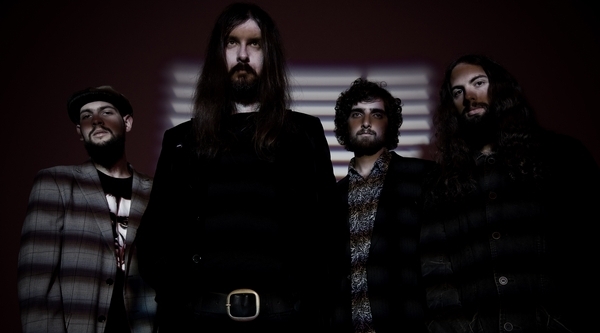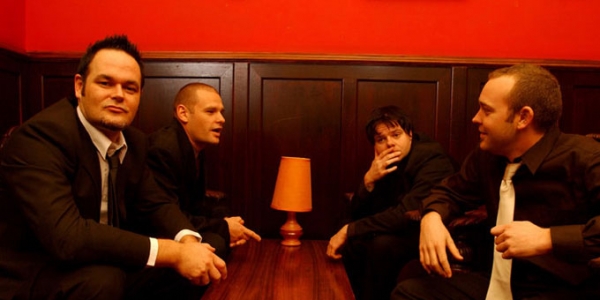“I’m really not sure,” says Kevin Starrs, otherwise known as the eponymous Uncle of UK quartet Uncle Acid & the Deadbeats. “I can’t put my finger on it. I really don’t know where it comes from, because it just seems like it’s such a sudden thing. I wish I knew. I’ve just got no idea how it all happened.”
Starrs isn’t just referring to the popularity of doom metal, but the whirlwind of activity Uncle Acid & the Deadbeats have been in the middle of since forming in Cambridge back in 2009. As it stands, the band have notched up four stellar records – including The Night Creeper, released in September – several international tours, and coverage from the likes of NPR, The Guardian and Pitchfork. Not bad for a band who spent the first half of their career deliberately hiding their online presence, refusing interviews and remaining faceless thanks to an absence of press photos.
“The photo shoots – I was just so against it because I thought it has nothing to do with the music that we make,” says Starrs. “The music’s completely a fictional thing and it had nothing to do with me. I don’t want pictures of me being associated with the music. I still kind of feel that way, but sometimes you have to make compromises on things and it’s not too big a thing to compromise on.
“[At first] we didn’t have any media interest,” he adds. “We didn’t even have pictures of ourselves. It was just all done through word of mouth. I didn’t think that would be possible these days. You see all the different bands and they’ve all got Twitter accounts and you think this is how you have to do it, but we’ve proven that you don’t have to go completely overboard with social media and the press and things like that. If the music’s good enough, people will spread the word for you.”
In the case of Uncle Acid, you can be damn sure the music is good. So good, in fact, that it landed them a 13-date tour supporting Black Sabbath a couple of years back. “We would never have dreamed that when I was starting the project,” Starrs says. “We never thought that it would get to that stage at all. We couldn’t even get a lineup together to play a gig, never mind tour with your heroes. It was just completely unimaginable. But it was great – they treated us really well. We respected them, they respected us.”
The Sabbath influence is obvious across Uncle Acid & the Deadbeat’s discography. Starrs’ singing voice is the most obvious parallel – a kind of banshee howl somewhere between a young Ozzy Osbourne and Pentagram’s Bobby Liebling. But although they incorporate their fair share of doom inflections – plodding rhythms, gargantuan riffs – Starrs and company eschew a number of the genre’s defining traits. These aren’t 12-minute songs at less than 60 beats per minute. They’re highly refined, imbued with menace, occult lyricism and massive hooks. Melody is often a dirty word in the context of hard rock, but it’s a vital part of what makes Uncle Acid & the Deadbeats stand out.
Take Pusher Man, for instance; just one of several hook-heavy numbers from The Night Creeper. It kicks off with a hypnotic freight train of a guitar riff, sounding like some unholy concoction of Tony Iommi and Sleep’s Matt Pike. But behind Starrs’ occultish yowl – which, for all its omens of evil, is remarkably poppy – are some vocal harmonies reminiscent of the Shangri-Las.
“To me, a lot of it is just the melodies,” he says. “The melodies back then were just so good and so catchy and the songwriting was great. For me melody started to kind of disappear from a lot of pop music, especially recently. It’s almost impossible to find a good melody in a pop song now which is bizarre.”
At its core, The Night Creeper is a good pop record, as engrossed in the best parts of the Beatles as it is in the muddied menace of Black Sabbath.
“On this one I just felt more comfortable to put songs on that weren’t as obvious. I’m not sure if that’s the right way of putting it. People expect us to have that Sabbath-y sound and the fact that I can be inspired by someone like Pete Green and use that inspiration to write a couple of songs, I thought, ‘This’d be perfect. We’ll just show a wider range of influences on this album,’ and I think we do. It turned out really great in my opinion.”
BY MATTHEW TOMICH







